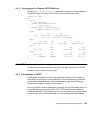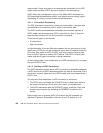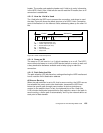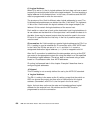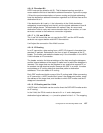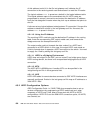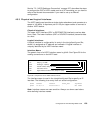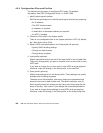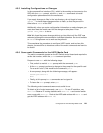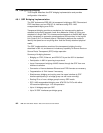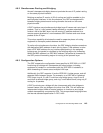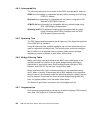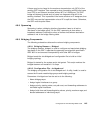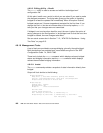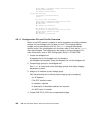Configuration of IP-Forwarding Media Cards 141
4.5.5 Installing Configurations or Changes
In the command line interface (CLI), which is the working environment on the
GRF with the
super> prompt, use the set and write commands to install
configuration parameters onto the media card.
If you apply changes to files in the /etc directory, do not forget to issue
grwrite -v to have these changes written to flash, so that they are still in
effect after a
reboot of the GRF.
Additionally, when you enter configuration information or make changes, you
must also reset the media card for the change to take place. Enter
grreset <slot_number> to do so.
Hint
: We found that some changes did not go into effect until the GRF was
rebooted, although the documentation indicated otherwise. So do not hesitate
to
reboot if things seem not to work as they should.
This completes the procedure to configure HIPPI cards, and to close this
chapter, we would like to introduce some of the maint commands we found to
be useful.
4.5.6 Some maint Commands for the HIPPI Media Card
The maint commands operate on the SP Switch control board and require the
card’s slot number, which the
grcard command provides.
Prepare to use
maint with the following steps:
• First, switch to maint’s
GR 66> prompt with the command grrmb.
• At the
GR66> prompt you have to change to the prompt for the specific card.
For a card in slot 0, this would be the command
port 0.
• A new prompt, along with the following message, will appear:
Current port card is 0
GR 0>
• Finally, at this prompt maint commands can be typed in.
• To leave the
GR 0> prompt, enter quit.
The following maint commands were most useful for us:
To obtain a list of maint commands, use
maint 1. To see IP statistics, use
maint 133. Observe IP routing statistics with maint 130 13 and control switch
error counts with
maint 141. Peek at the ARP table entries with maint 156 and
get the IEEE address with
maint 128.



